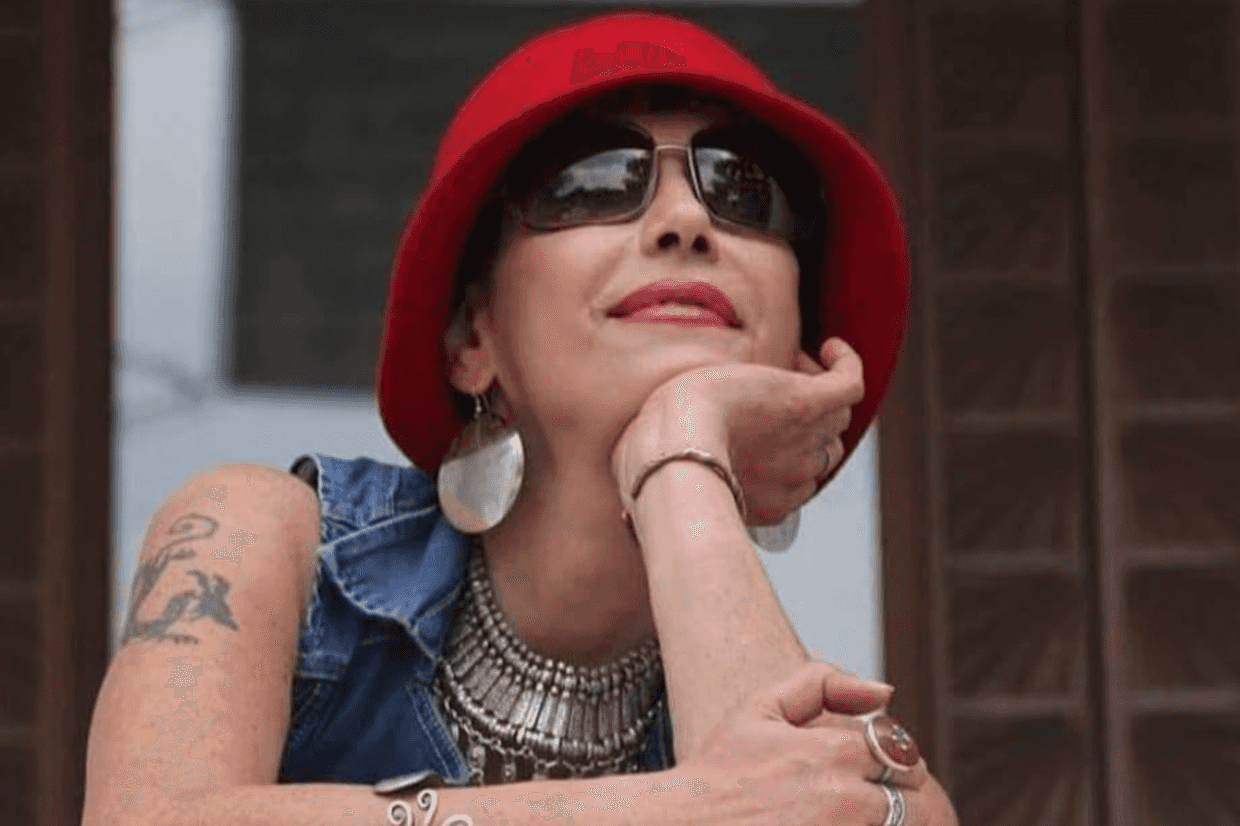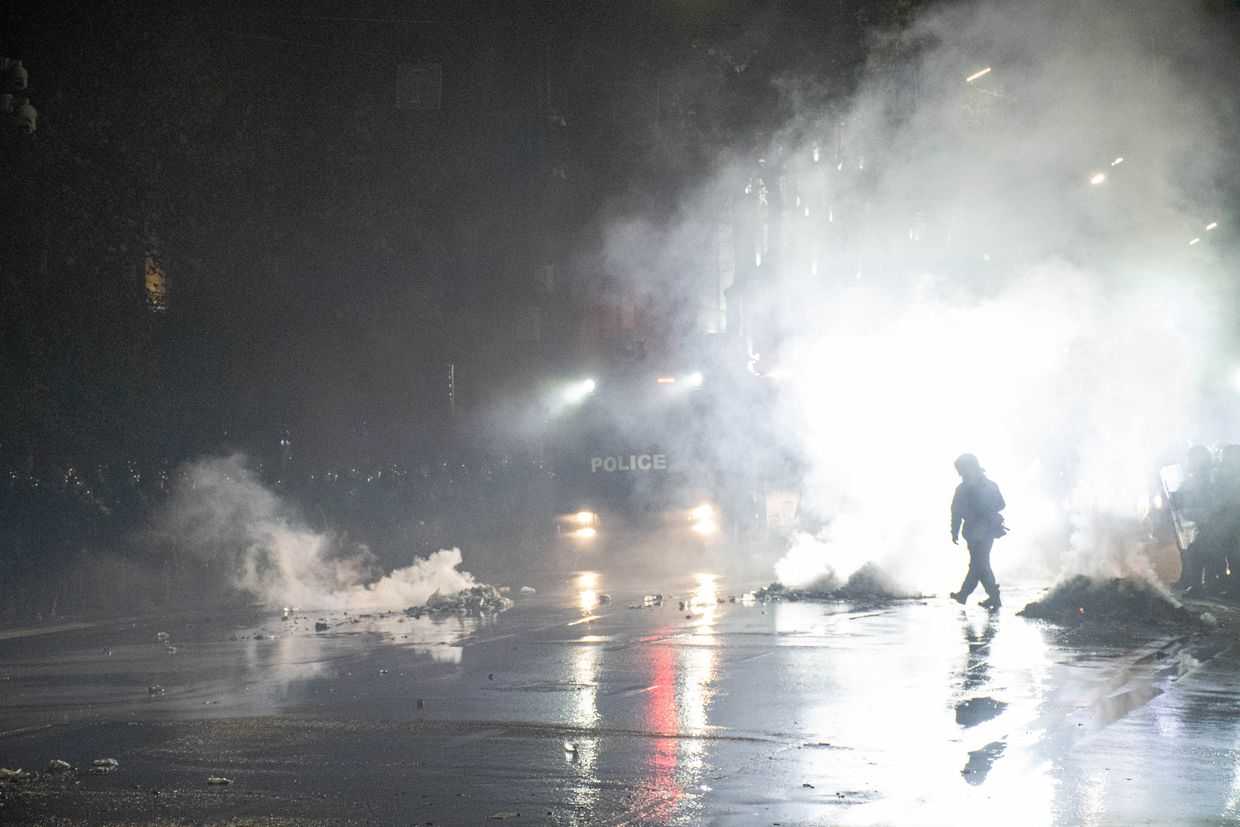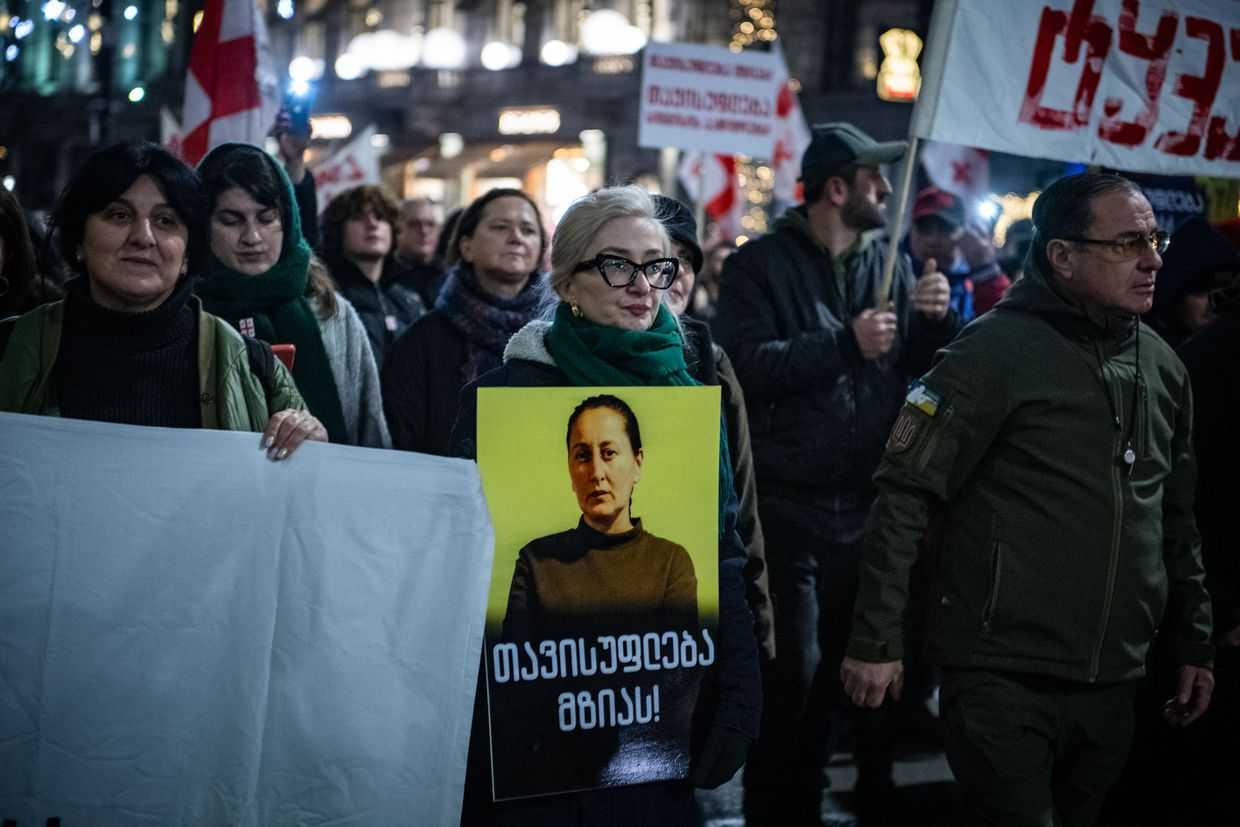Georgian opposition leader ejected from foreign agent hearing after being attacked by committee chair
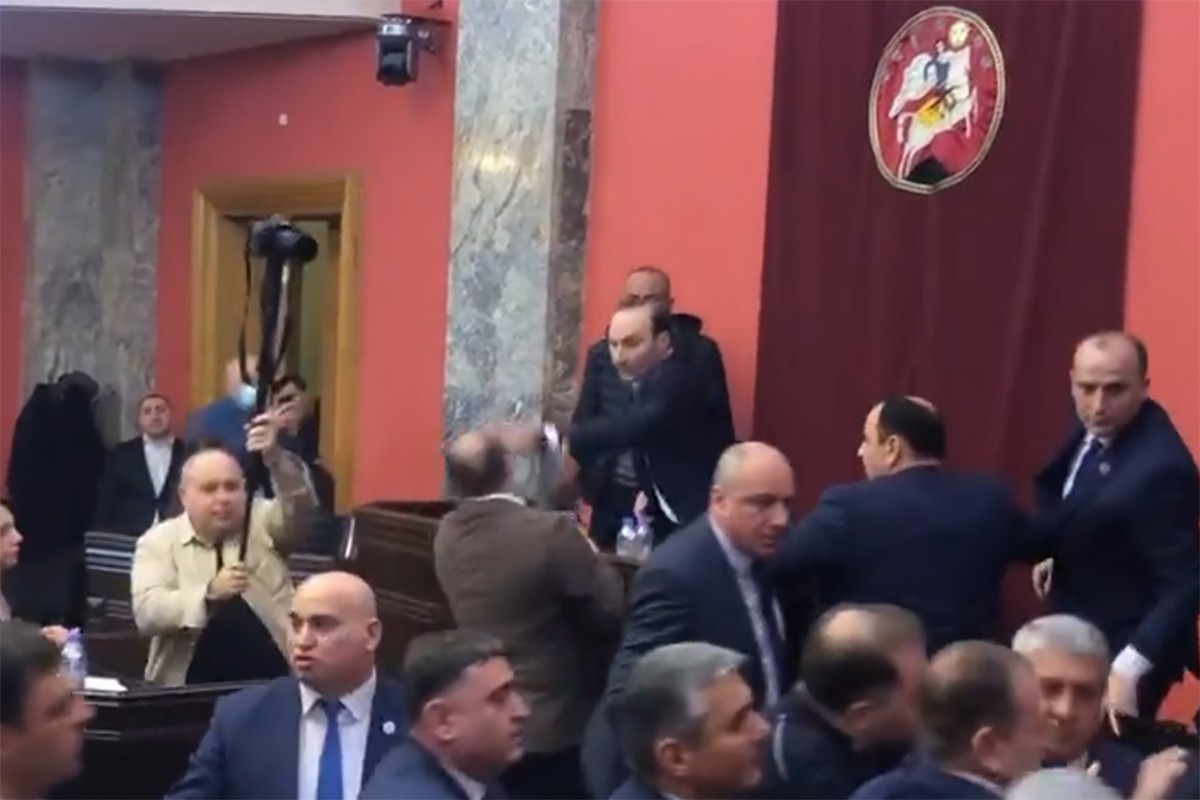
The leader of the opposition United National Movement party (UNM) has been ejected from the Legal Affairs Committee hearing on the draft foreign agent law, after being attacked by the committee’s chair.
Georgian Dream MP Anri Okhanashvili slapped Levan Khabeishvili in the face but was allowed to continue to oversee Monday’s hearing, while Khabeishvili was dragged away by parliamentary security.
Khabeishvili, the newly elected chair of Georgia’s largest opposition party, approached Okhanashvili during a recess in an apparent protest against the controversial bills on foreign agents. Footage shows Okhanashvili standing to his feet and striking Khabeishvili, before the latter and other opposition groups were thrown from the committee venue by security.
The foreign agent bills, which are supported by the ruling Georgian Dream party, have stirred a wave of protests and been widely condemned both at home and abroad since February.
Monday’s session descended into chaos after Salome Samadashvili, an MP from the Lelo party, unfurled a banner with Georgian Dream’s logo on it accompanied by the text ‘Русский военный корабль, иди на хуй’ (‘Russian warship, go fuck yourself’). Samadashvili was soon whisked out of the session by parliamentary security.
Before the brawl, Okhanashvili used his position to turn off the microphones of opposition MPs for ‘violating procedures’ and making statements instead of following the committee agenda. In response to criticism of the bills and Georgian Dream’s support for them, Okhanashvili called on Strategy Aghmashenebeli leader Giorgi Vashadze to ‘readjust his face’ and described him as a man ‘without a homeland’.
Both versions of the bill were subsequently approved by the committee.
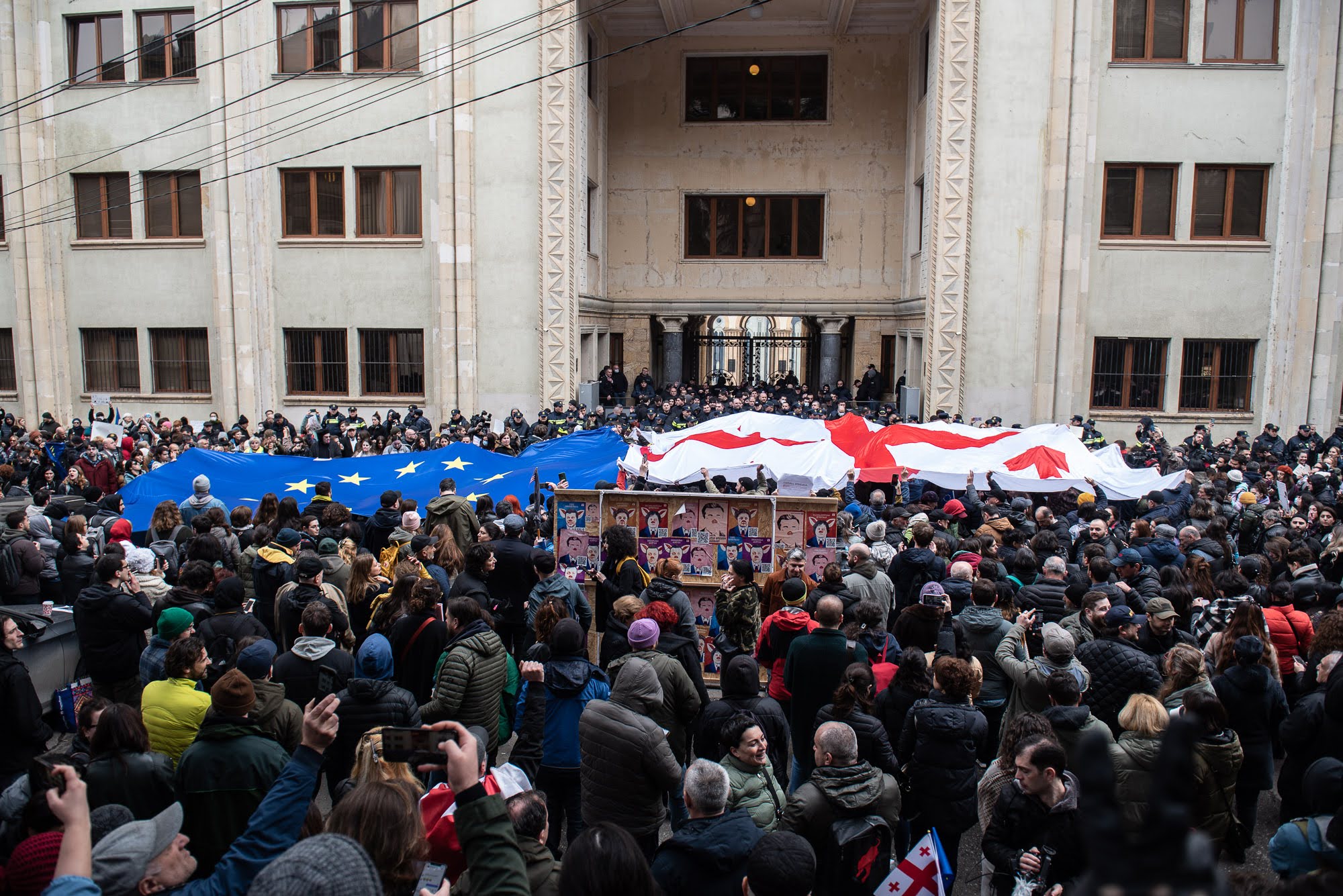
Last year, Okhanashvili was implicated in what the founder of opposition-leaning TV channel Pirveli, Vakhtang Tsereteli, described as a mob attack against him.
Okhanashvili, who later confirmed he attacked Tsereteli, never faced legal repercussions over the incident.
[Read more on OC Media: Georgian Dream ‘will not open parliamentary probe’ into Khazaradze affair]
Similarly, the Georgian Parliament declined to state if Okhanashvili would face any consequences over his latest act of violence.
‘Idiots!’
As Okhanashvili was leading the committee session inside parliament, protesters gathered outside the building to protest what has been widely seen as a ‘Russian law’.
Some protesters held banners warning that ‘it started the same way in Russia’, a reference to Russian foreign agent legislation that was first introduced in 2012 and vastly expanded over the next ten years to curb civil freedoms.
One opposition activist, Beka Kvachantiradze, burnt a Russian national flag while others pelted eggs at the windows of parliament.
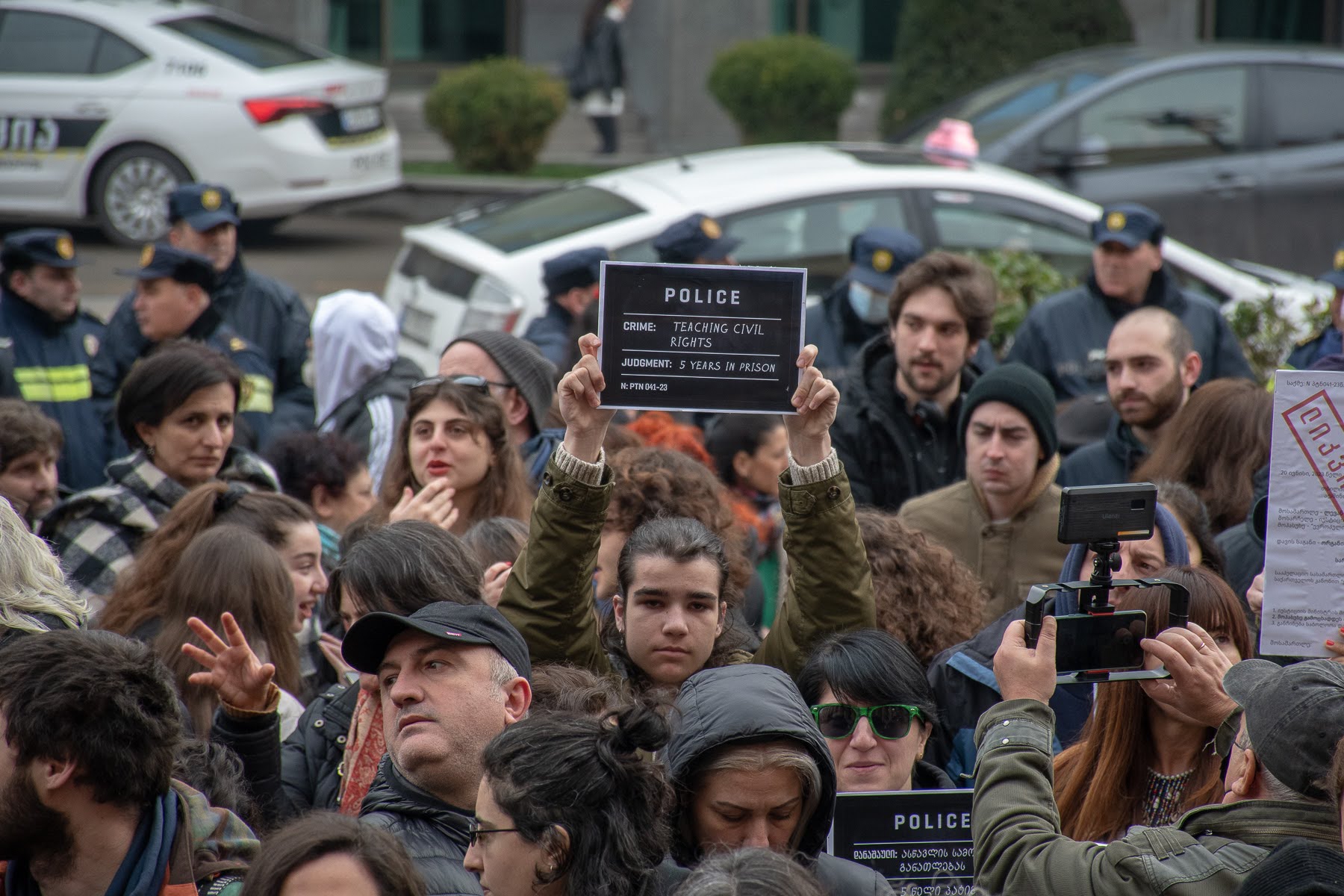
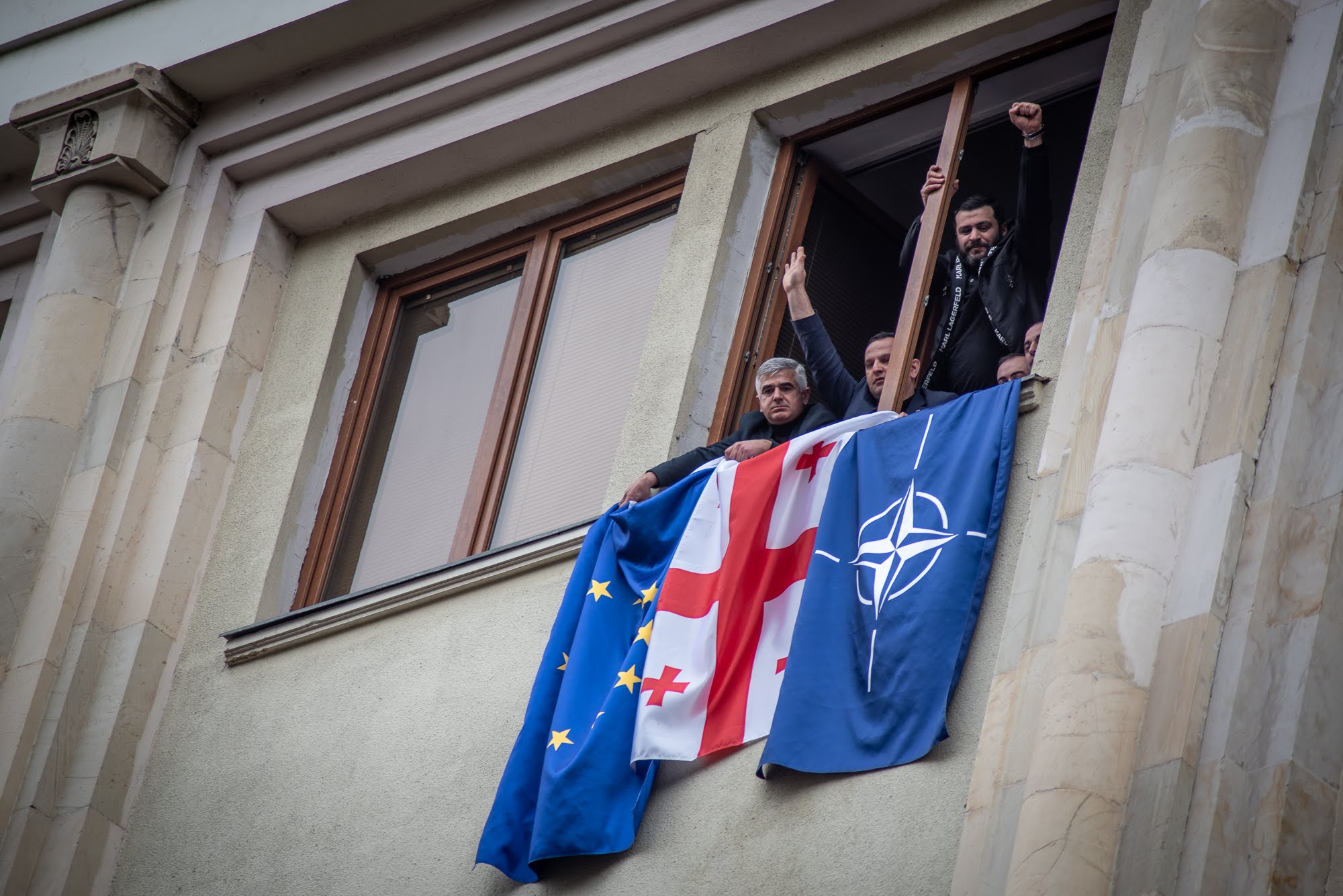
Giga Bokeria, the chair of the non-parliamentary opposition group European Georgia, who was among those protesting outside parliament, told OC Media that the legislation even being discussed was already problematic.
‘Even the initiation of this law is part of a bigger picture in which [Bidzina] Ivanishvili and his entourage are trading the future of our country for their power and money’, Bokeria said.
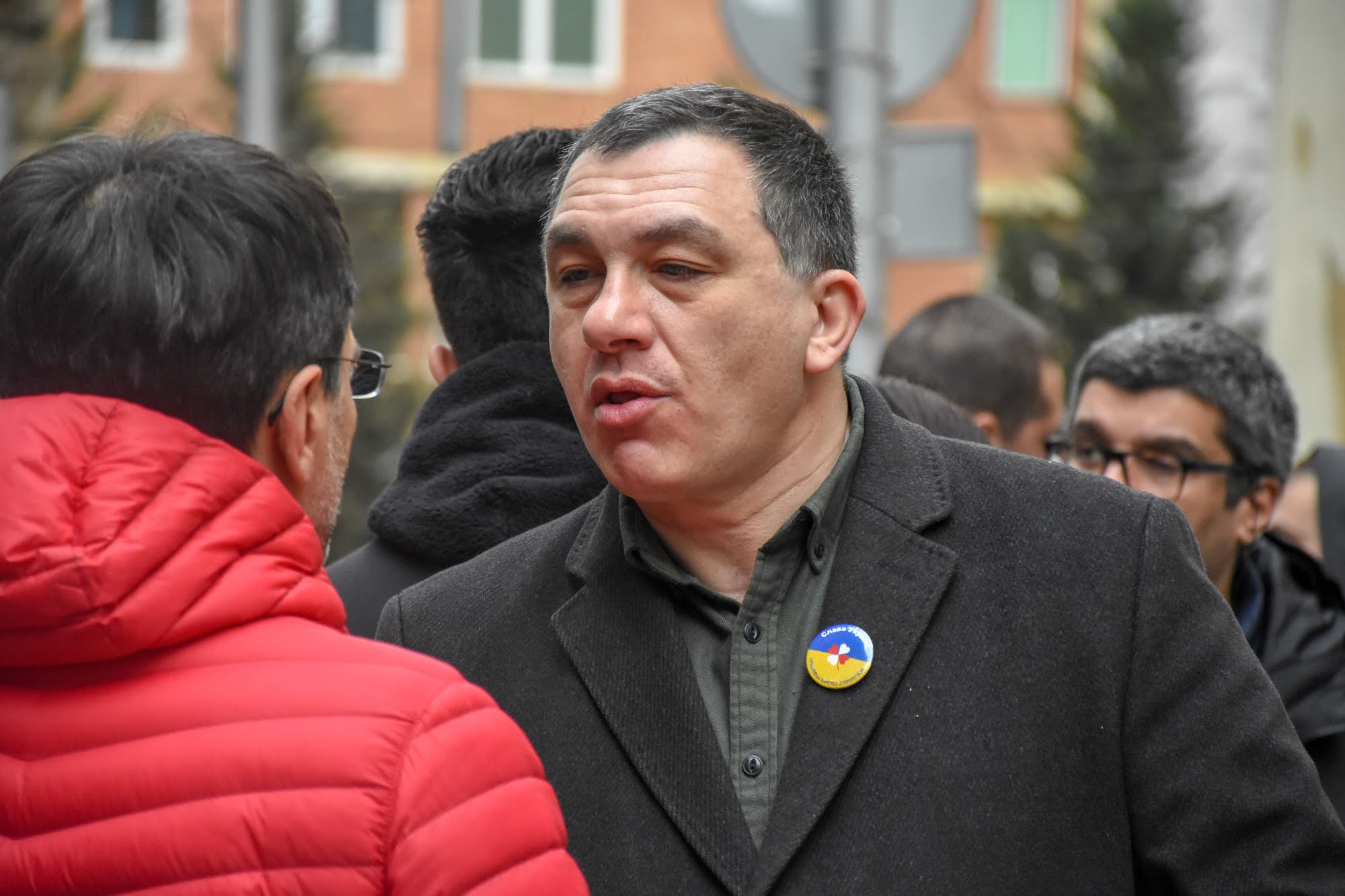
Zakareishvili was arguably the harshest in his condemnation among them. In recent days, he called Georgian Dream members ‘idiots’ and ‘scoundrels’ for their support of the controversial legislation and has called for a campaign on civil disobedience.
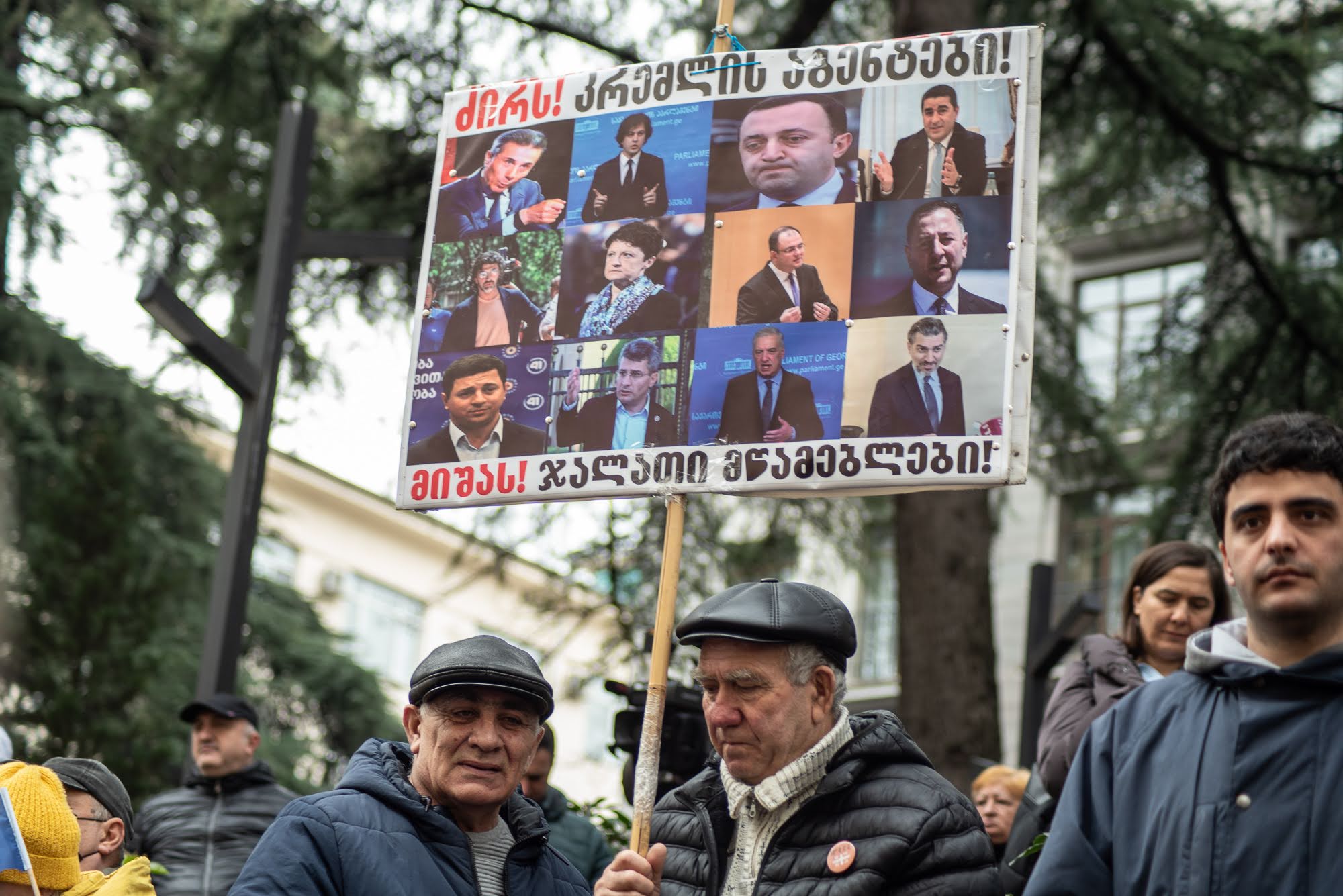
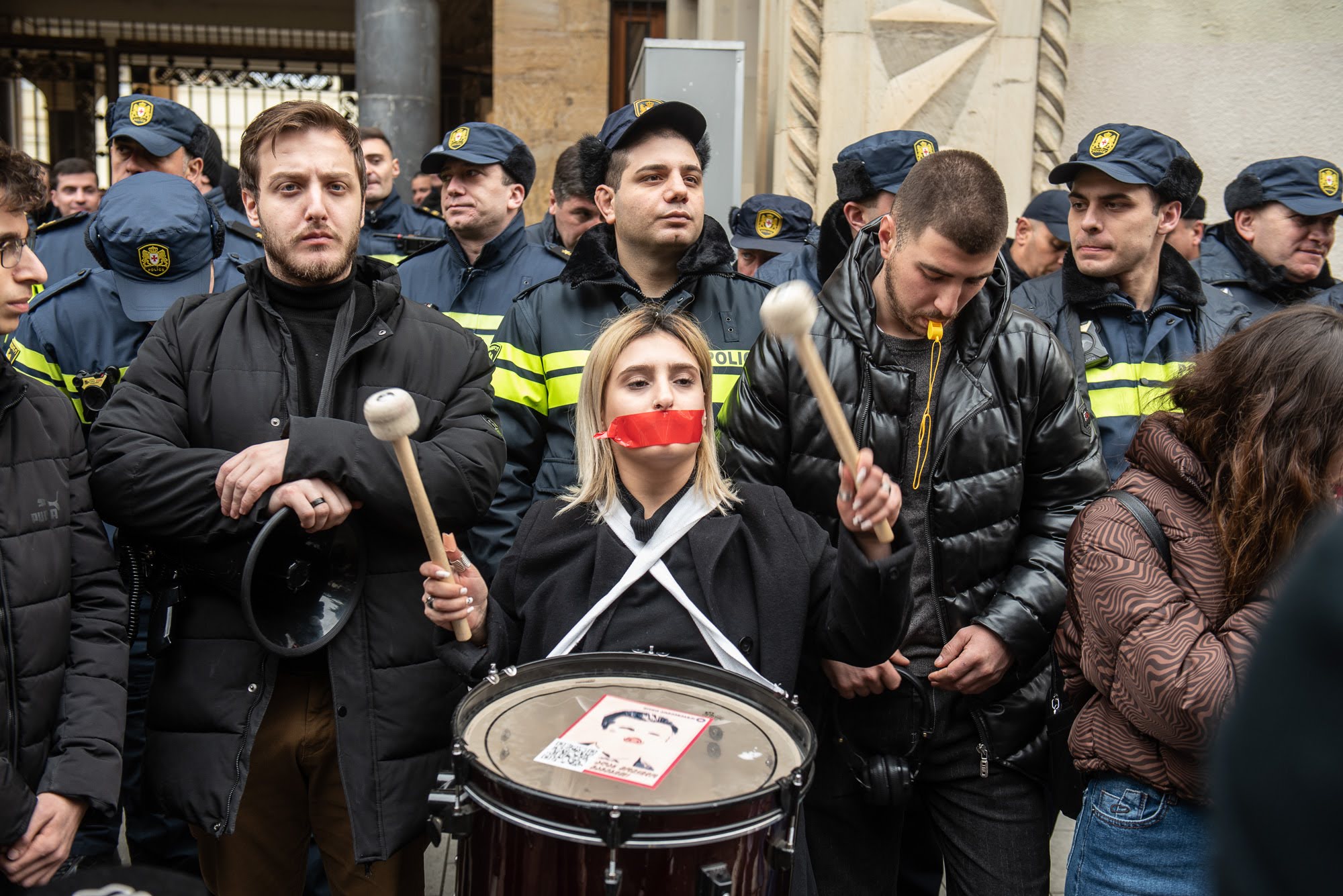
The legislation has also been criticised by former Prime Minister Giorgi Kvirikashvili and ex-foreign minister Mikheil Janelidze. Both served under the Georgian Dream-led government.
In addition to a growing chorus of international condemnation, the legislation has garnered increasingly robust criticism from a wide array of the Georgian public. These included groups of academics and teachers, unions, business groups, regional non-profit organisations, as well as a grassroots anti-dam movement, Saving Rioni Valley.
It seems that the Georgian government has decided to go step by step backwards. So many recent decisions are in conflict with the former very pro- european way. https://t.co/fk2aFl0fZI
— Rebecca Harms (@RebHarms) March 3, 2023
On Monday, prominent Georgian footballer Shota Arveladze also spoke up against the proposed bills.
The bills are expected to go through a series of committee hearings before being put to a final vote, something that the Georgian Dream leadership indicated may not happen until summer.
‘Security regime’
Outside the content of the bills, the manner in which the ruling party has pursued them has also come under increasing criticism.
A number of opposition MPs, including Khatuna Samnidze, have alleged that Anri Okhanashvili deprived them of the chance to speak at Monday’s hearing before using parliament’s security to remove them.
During the previous committee hearing, on 2 March, Samnidze had to physically remove an unidentified man blocking her from entering the session.
On 6 March, the heavy security presence also prevented reporters from directly following the debates at the hearing, while parliament did not grant passes to many media organisations, including OC Media, to even enter the building.
This left most of the media with an official transmission of the session, which suffered from low-quality audio and disruptions.
The parliament’s press office explained the denial of passes with the need for an enhanced ‘security regime’ — a recurring measure used during controversial events in recent years to curb the number of civil activists being granted passes as visitors.
On Sunday, news outlets Tabula and Formula reported that parliament had suspended the accreditation of their reporters for a month.
Publika said that the parliament’s administration explained that their decision was related to other journalists from the organisation protesting the foreign agent bills at parliament on 2 March.
On 2 March, police detained 36 people, including reporters from Publika and Tabula.
[Read more on OC Media: Georgian foreign agent law passes first committee hearing]
A case against them on charges of resisting and disobeying police is still pending.
The Charter of Journalistic Ethics and the Georgian Coalition for Media Advocacy promptly condemned the revocations and called on the Speaker, Shalva Papuashvili, to restore their accreditations.
The Coalition added that ‘in recent days, the Parliament of Georgia has become a symbol of illegal restrictions on journalistic activity in the country’.
[Read more on OC Media: New accreditation rules threaten to ban media outlets from parliament]



